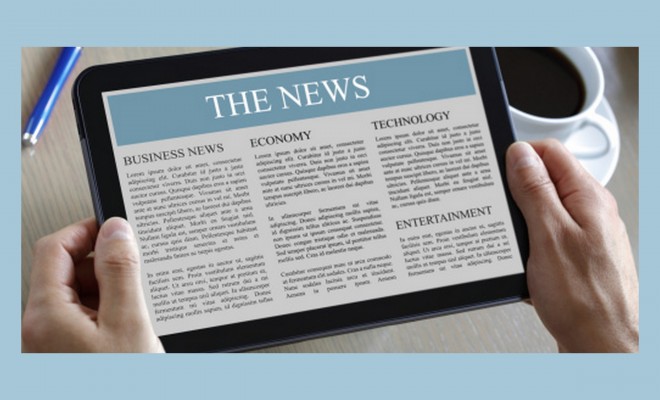
Newspapers, They’re Good
I spent last week mostly off the grid on a trip and made an unusual, concerted effort to stay away from the news. Because of this, I learned about the Silicon Valley Bank collapse the old-fashioned way: While checking out of my hotel, I glimpsed a discarded copy of Monday’s Wall Street Journal and caught the heavily bolded headline. Learning about things from a newspaper is an exceedingly normal thing that normal people do all the time. But as an internet-poisoned millennial who works in media, I rarely come across a dead-tree copy of the news and learn something stunning from the headlines. I’m not breaking any new ground here with this observation, but I think the newspaper was really onto something, you guys.
Emerging from my news hibernation like a drowsy, uninformed bear, I had an experience straight out of the pre-smartphone era: See surprising headline, have many questions. Read lead story, have new questions. See article next to lead story that answers a few of those new questions. Rinse, repeat. Close paper, feel mostly satisfied and up to speed. As far as user experiences go, it was a great one. Turns out, an ideal way to consume news is to give journalists space to spend three days wrapping their head around an issue or event, and then to dive in and take time to read both the news reporting and the bigger contextualizing explainers in one stretch.
When most news happens, there’s an information vacuum that is immediately filled by an endless barrage of tweets, videos, and overconfident punditry. Some of this is right and responsible, but even more of it is wrong or reckless. Still, it’s a reasonably addictive way to get your news, specifically because it comes in pieces. There’s this feeling that you’re part of a collective of similar news obsessives who are cobbling together information. There’s endless room for debate or to yell at people when they jump the gun. The theorist L. M. Sacasas, who I quote frequently in this newsletter, has a great framework for this style of digital consumption: “The database has replaced the narrative.” Here’s how he describes it:
It’s not that we are literally presented with a relational database, but that we are confronted with what amounts to a loosely arranged set of data points, whose significance and meaning has not been baked into the form itself (as is the case with information encased in narrative). One effect of our digital media environment, then, is to immerse us in searchable databases of information rather than present us with comprehensive, integrated, and broadly compelling narratives.
This helps explain why being online has such a “choose your own adventure” feel when it comes to pretty much every potential news narrative. Sacasas argues (rightly) that this is also why misinformation feels so prevalent online. Obviously, people have been misleading each other since long before the internet, and the problem now isn’t just that deception circulates easier than it used to:
The problem is that under conditions of information superabundance, any bit of data, even if it is reasonable and accurate (perhaps especially if it is so), can be incorporated into wildly disparate and competing runs through the Database. It’s the total effect that matters most. The sum of our daily bombardment with information is to overwhelm and deplete our cognitive resources.





